Javier Milei: President denies ordinary Argentines paying for austerity cuts
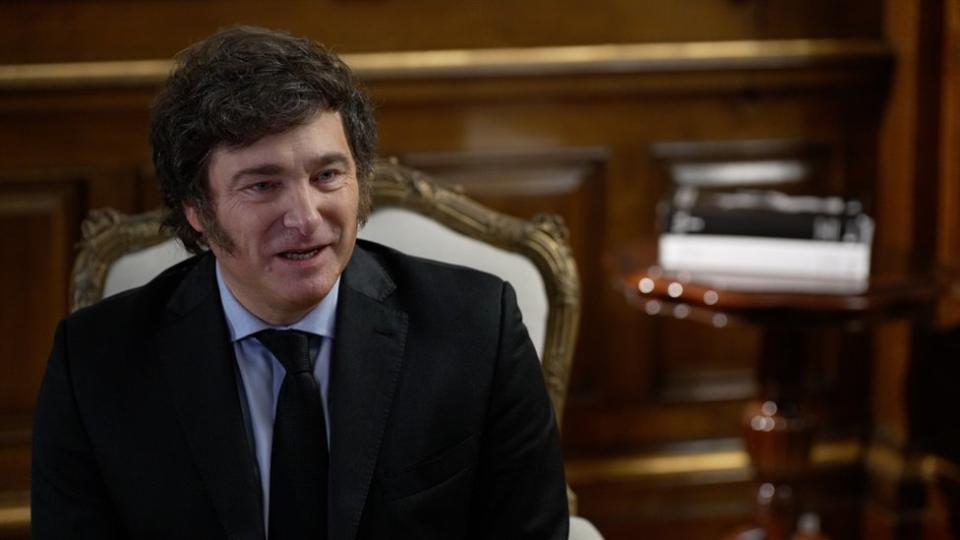
Argentina's President Javier Milei has denied that it is ordinary Argentines who are paying for his radical austerity measures.
In a BBC interview, Mr Milei, who campaigned with a chainsaw to symbolise his desire to slash public spending, insisted that the political class were paying for his huge cuts, not the people.
The right-wing economist was voted in after years of high government spending and high debt.
Inflation is now starting to fall after it initially soared when he took office in December, but it remains the highest in the world annually.
The president's critics argue millions of Argentines are paying the price for his austerity programme.
In the five months since he was sworn in, he has slashed public sector jobs, energy and transport subsidies, and the value of the currency so people's money is worth less than it was.
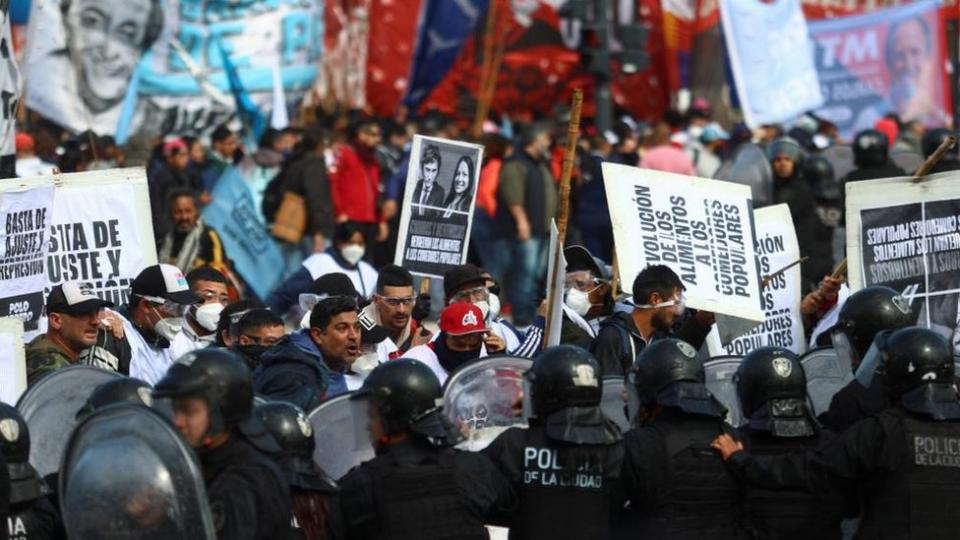
Meeting him for the interview in his presidential office, there were clues to his unconventional political background as a celebrity TV economics pundit: a photo of the Rolling Stones (he was in a tribute band), a bust of himself on the desk, a toy model with a chainsaw, and a water bottle with a photo of himself on it.
Gifts from his fans, his team said.
His face lit up with glee when he told me his favourite Rolling Stones song is Rip This Joint, which he said was off an album with "libertarian components".
Since he became president, he has maintained his radical rhetoric about the economy, but has toned it down on other issues.
He refused to repeat his past criticism of China, one of Argentina's biggest trading partners, a nation which he labelled an "assassin" during his presidential campaign.
As far as economics is concerned, he has made cutting inflation, which stands at 287% annually, his clear priority, arguing that "the most regressive tax that most afflicts people is inflation".
But many of his policies have caused prices to rise in the short term, at a time when salaries and pensions are not keeping up with inflation.
Julia is one of those who can no longer make ends meet on her monthly pension of about US$190 (£150).
The 72-year-old retired chef travels two hours every day to supplement her meagre pension by singing in Buenos Aires.
It is the common people who are suffering, she told me, in tears.
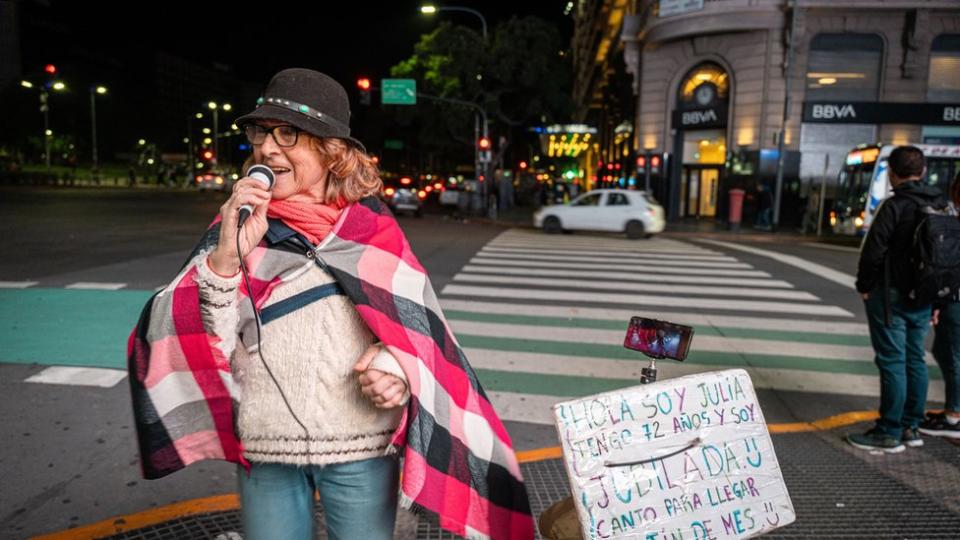
Confronted with her statement, President Milei said this was "false".
He insisted that the brunt of the burden was being borne by what he called the political corporation, claiming that 90% of the cuts were falling on the political class and only 10% were achieved through cutting government spending on pensions.
Independent analysts say spending on pensions has been cut by 30-40% in real terms - with some saying this makes it one of the biggest government spending cuts.
In his interview with the BBC, President Milei celebrated the fact that his administration had managed to lower spending to a level below tax income for the first time since 2008.
When repeatedly asked what he would say to pensioners like Julia who are struggling, he said: "You can't make a macroeconomic evaluation based on the situation of an individual."
He argued people were being influenced by information spread by the "rotten" mass media and journalists, whom he described as "serial liars".
When it was put to him that the information that people had access to were prices on shelves, such as the price of milk, which has doubled since he took office, he said: "You don't do economics based on the price of an individual asset."
He defended his policies to the BBC, saying that "there is no magic, real life needs time".
"What would have been the alternative? To continue to print money like the previous administration that generates inflation and ends up affecting the most vulnerable?"
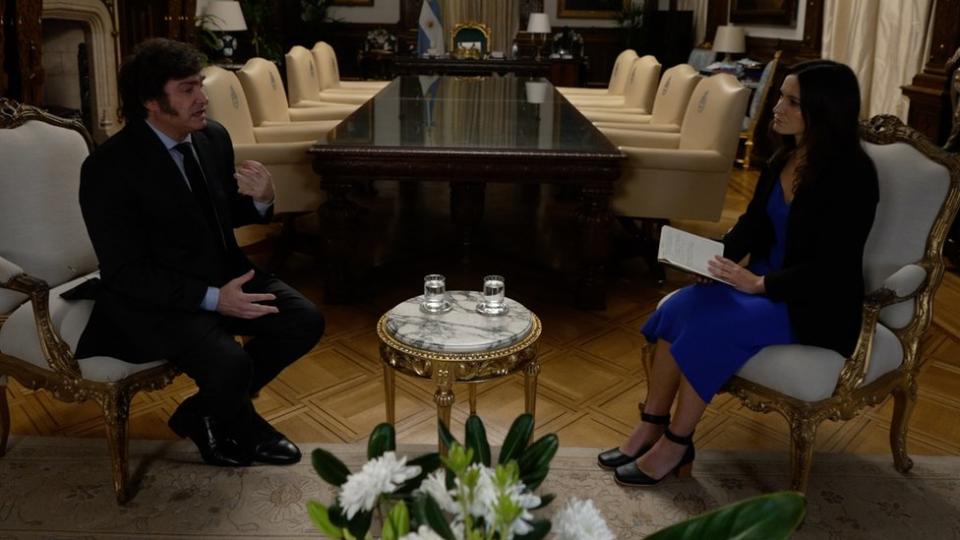
Mr Milei insisted his economic programme was helping the most vulnerable - for example, by increasing some welfare benefits such as support for unemployed people with children to buy food.
He said economic indicators were "improving" and that "in the last month, salaries beat inflation".
But many Argentines say they are not convinced by his argument.
Vanessa López, who works at a soup kitchen in a poor neighbourhood of Buenos Aires, said demand for their service had increased.
"It's not only people who are homeless, there are entire families that come looking for a plate of food."
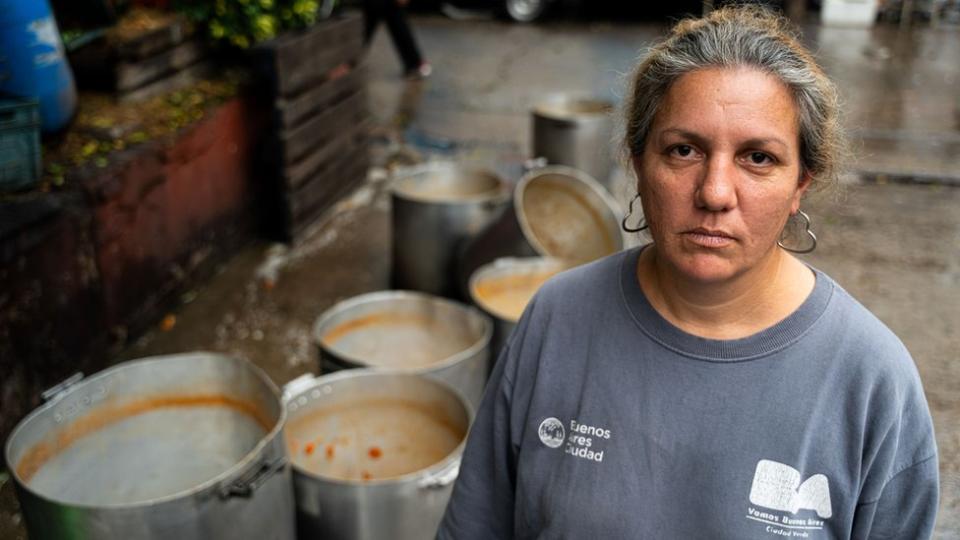
Some of the president's fans are willing to give him time. Nicolás Vargas said he and his partner Ornella struggled to make enough to cover the basics.
But he said Argentina's economic crisis was something that "has been going on for a long time, even decades, and it cannot be fixed in two, three, four months, even a year".
"I have that faith. I estimate it will take two years. In other words, this year is the year of recovery."
This sentiment is shared by President Milei, who insisted in the interview that he did not care how many people criticised him, because of his "conviction" that "a better future is getting closer".
The full interview is available on BBC iPlayer and BBC Sounds or you can listen to Ione Wells discuss her interview with President Milei on The Global Story podcast.
